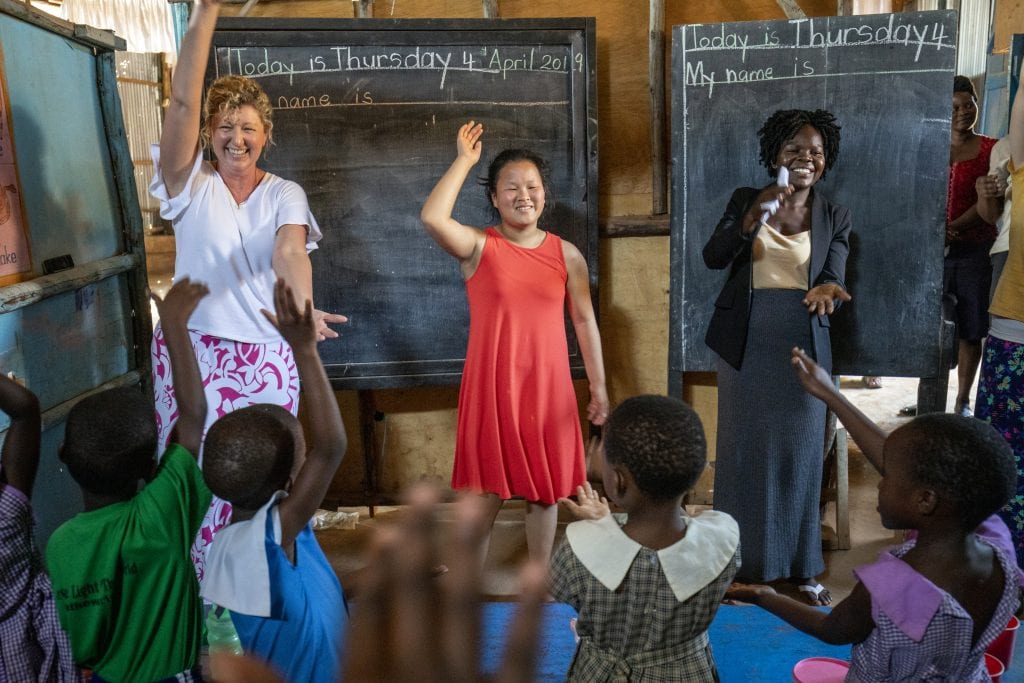Before going to the cross, Jesus prayed that His followers – those who walked with Him then and those who do so now – would be one. The desire of His prayer was “that they may all be one, just as you, Father, are in me, and I in you, that they also may be in us, so that the world may believe that you have sent me” (John 17:21).
The purpose of oneness was so that the world would believe. Oneness of heart and mind is the goal of the Creator. Oneness of mission and belief is the vision of the Savior.
There are so many ways we see this oneness revealed. When believers who comprise a local church come together to do so much more together than they ever could apart, we see this vision of oneness realized.
When groups of churches in one geographical area see their community changed because they decided eradicating lostness was a bigger priority than increasing attendance in their individual congregation, we see Jesus’ prayer answered.
When believers everywhere work together to “Go … and make disciples of all nations, baptizing them in the name of the Father and of the Son and of the Holy Spirit” (Matthew 28:19), we are on mission together.
As Southern Baptists, we have the opportunity to demonstrate our oneness of mission and belief in a unique way. Nearly 100 years ago Southern Baptists created the Cooperative Program. The Cooperative Program unifies all Southern Baptists around the Great Commission in a tangible budget that allows us to reach people near and far with the gospel of Christ. We can truly work together no matter where we are or how our church functions.
The smallest church in our convention can boast thousands of missionaries – sent in Jesus’ name – as an extension of their congregation. Our rural churches are able to assist in planting churches in urban areas among people who have never heard the name of Christ. Through the unified giving channel, our largest churches demonstrate that we serve a Kingdom much greater than any one church can be.
At my church, we put the first 10 cents of every offering dollar we receive into the Cooperative Program. This is what works best for us. We want to ensure our mission endeavors are not leftovers, but a clear sign of our commitment to the Great Commission. Not every church can do this amount, some can do much more. We can all give something and be a part of what God is doing. If we are going to be a movement of churches on mission, we have to do it together.
The Cooperative Program keeps in front of us the reality that we are pieces of a global gospel movement.
The church I pastor is a small church. While we have a lot of gifted leaders and have been able to send out many into ministry, we would struggle to support a full-time missionary on our own. It would be difficult to send out church planters and develop the needed theological education to equip men and women for ministry. By ourselves, the number of orphans and children in foster care that we could help is unfortunately few. When a disaster strikes, my church reaches out to help, but there are only a few of us, and the needs are often so huge.
However, each Sunday, our church helps do all these things. We have thousands of missionaries across North Carolina, North American and around the world. We have not one, but six seminaries and a Bible college located in our beautiful mountains. We operate children’s homes and adoption services throughout North Carolina and internationally. Thousands rally to the needs of those who are hurting when disasters strike. We can do all of this because as Southern Baptists we support missions through the Cooperative Program.
The Cooperative Program keeps in front of us the reality that we are pieces of a global gospel movement. I fear too often we get caught up in doing our own thing, forgetting our calling is so much greater. We are much more than the silo of our own kingdoms, no matter how grand or insignificant they may seem. We are better together. We are better when we are one.
(EDITOR’S NOTE – Micheal Pardue is pastor at First Baptist Church Icard in Connelly Springs and president of the Baptist State Convention of North Carolina.)

